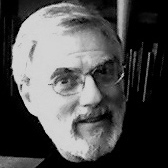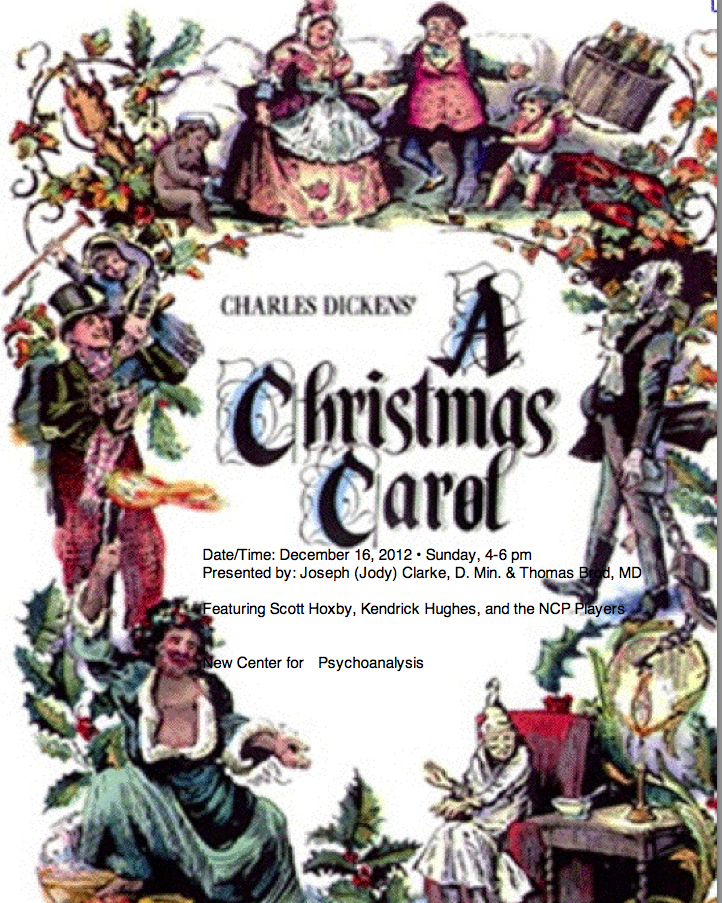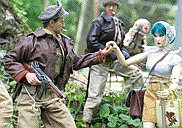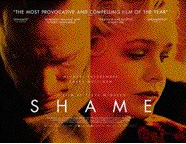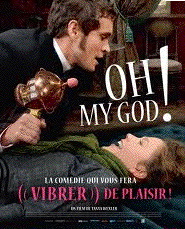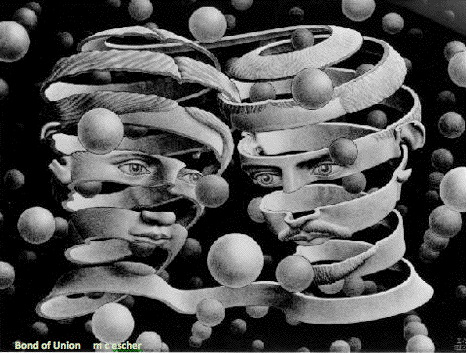|
NOTE: Some links open PDF documents and requires Adobe Reader software installed on your computer. Click here to obtain free Adobe Reader software, if needed. Past Courses/Programs Note this is not an actively maintained site (for annoying technical reasons, it is difficult to update). Current Infoemation is carried at
Course: Strengthening the Fragile Ego With ISTDP Strengthening the Fragile Ego With ISTDP: Two Audio-Visual Demonstrations The program will begin with a brief overview of ISTDP principles, and then each of the presenters will offer a lecture with video demonstration of working with a fragile and difficult patient. The faculty will invite discussion with the audience to deepen understanding of the processes demonstrated. Note: Confidential clinical material will be presented; therefore, this program is limited to licensed/registered clinicians and those enrolled in a certified training program. Course Objectives: · Review foundations of ISTDP, including “triangle of conflict” work · Discuss ego fragility and the therapeutic repair of psychotrauma · Explain the concept of turning super-ego struggle into Unconscious Therapeutic Alliance · Learn ways to fortify desire and hope in overcoming resistance. · Learn techniques to build upon patient strengths in the battle against the defenses Thomas Brod, MD is Associate Clinical Professor, Psychiatry, Geffen UCLA School of Medicine, faculty New Center for Psychoanalysis, and in private practice. He has studied ISTDP with Robert Neborsky MD and Habib Davanloo MD; he is co-vice-president of the Southern Californian Society for ISTDP. Susan Warren Warshow, LCSW, MFT is a Board Certified Diplomate and practices psychotherapy in Woodland Hills for individuals and couples. She conducts seminars, training programs and private supervision for professionals in the L.A./Pasadena area. She has presented internationally and published several journal articles on ISTDP. http://www.n-c-p.org/edu-event.asp?id=160&the_type=Course Beyond the Working Alliance:Working with Intense Dynamic AlliancesNew Center for PsychoanalysisPresented by Thomas M. Brod, MDNovember 14, 2009This course is open to licensed health and mental health professionals only.
Course Objectives · Differentiate the use of “therapeutic alliance” in several psychoanalytic clinical theories · Understand the naturalistic relationship between conscious and unconscious therapeutic alliances · Effectively utilize several types of pressure in the intensification of the conscious therapeutic alliance · Discuss the relationship of painful emotional experience, Resistance, and the Unconscious Therapeutic Alliance in Davanloo’s ISTDP · Effectively utilize several techniques to safely facilitate such alliances in their own clinical practice Thomas M. Brod, M.D., Faculty, the New Center for Psychoanalysis, Associate Clinical Professor of Psychiatry, UCLA, and in private practice in West Los Angeles. Saturday, November 14, 2009 9 AM – 12 Noon New Center for Psychoanalysis $40 pre-registration; $45 at the door NEW CENTER FOR PSYCHOANALYSIS film: Charlie Kaufman'sSynecdoche, NY
|
|||||||||||||||||||||||||||||||||||||||||||||||||||||||||||||||||||||||||||||||||||||
|
|
||
|
|
|
|
|
|
|
|
|
|
|
|
|
|
|
|
|
|
|
|
|
|
|
|
|
|
|
|
|
|
|
|
|
|
|
|
|
|
||
|
|
|
|
|
|
|
|
|
|
|
|
|
|
|
|
|
|
|
|
|
|
|
|
|
|
|
|
|
|
|
|
|
|
|
|
Healing Affects in Clinical Practice Series
Restructuring Defenses: IS-TDP Overview for Advanced Clinicians
Instructor: Thomas M. Brod, MD
4 Sessions, 8 hours
Mondays, Oct. 30, Nov. 5, 12, 19, 2007 7:45-9:45 pm
Course Description
The Healing Affects Series derives from the ground-breaking work of Habib Davanloo, M.D. on affect and attachment. In prior years, the Series has examined such practical clinical topics as working with anxiety, depression, regressive reactions, and explosive discharge and outbursts.
This course will overview the revolutionary technical advances Davanloo brought to psychoanalytic therapy to bring about rapid, potent (long-lasting) symptom relief utililizing transference-based dynamic interventions. The course will highlight the relationship between character structure, resistance, and the unconscious therapeutic alliance. Videotape vignettes will be used throughout the course.
Since this course is intended for advanced licensed clinicians, permission of the instructor is required for non-psychoanalysts prior to registration for this course.
Objectives: At the end of this course, participants should be able to
1. Discuss the relationship of time-sensitive preessure in the management of character resistances;
2. Assess and manage anxiety in a wide-range of psychopathology;
3. Discuss the management of the moral emotions, shame and guilt, in IS-TDP treatment;
4. Effectively and safely multiple affective elements of IS-TDP technique in their own clinical practice.
Thomas M Brod, MD, is faculty the New Center for Psychoanalysis, Associate Clinical Professor of Psychiatry, UCLA, and in private practice in west Los Angeles.
American Psychiatric Association
160th Annual Meeting, San Diego, California
Course # C085
EEG Feedback in Psychiatry: Clinical Applications
LOCATION: Ford Room A/B/C, Third Level, Manchester Grand Hyatt
Director: Thomas M. Brod, M.D.
Course Description:
EEG biofeedback (Neurofeedback) uses computer-based technology to affect brain plasticity and accelerate positive clinical outcomes. How do you “train the brain” with EEG biofeedback to improve affect, attention and behavior? How do you train neuroregulation and neuromodulation by altering electroencephalographic patterns-- and what are the clinical implications? How can neurofeedback (EEG biofeedback) be integrated into the practice of a reasonably tech-savvy psychiatrist?
Neurofeedback demonstrates the impact of information on the brain, creating functional (and, most likely, structural) changes that impact clinical syndromes.
Beyond well-known effects on arousal and attention mechanisms and its role in the treatment of ADHD, growing research publications and clinical experience have led to the application of neurofeedback in a wide range of disorders. With applications as disparate as mood and anxiety disorders, Tourette’s syndrome, epilepsy, post-traumatic brain injuries, attachment disorders, PTSD, substance abuse, and adolescent acting out, neurofeedback mirrors the scope of many general psychiatric practices. Neurofeedback is complementary to both psychopharmacology and dynamic psychotherapy.
This course will focus on a few of those applications and offer resources for further study. Current research will be critically reviewed, and some of the fascinating theoretical issues of brain self-regulation and plasticity will be noted, but essentially this six-hour course will be directed with an eye on practical issues.
Attendees also get to watch (or participate) in live demonstrations of several different available neurofeedback systems. Faculty are practitioners from several centers invited because of their exceptional teaching ability.
EEG Neurofeedback in Psychiatry: Clinical Applications
9:00 AM
Introduction/Applications (Brod)
9:25
EEG basics (Buie)
9:45
Live demo of neurofeedback (w/Audience)
10:00
Break
10:15
Case Examples (Schummer)
10:30
Audience discussion
10:40
NF Research Review including critique (Burke)
11:10
Audience discussion
11:20
How is NF used in a Psychiatric Practice (Panel)
11:40
Substance Abuse (Scott)-
12:00 PM
Lunch
1:00
Audience discussion
1:10
Attention Disorders: (Schummer,)
1:35
Bipolar disorder (Buie)
1:55
Head Injury (Burke)
2:15
Panel w/audience discussion
2:35
Break
2:50
Diversity in the NF field (Demos)
3:20
Panel discussion w/Audience
3:50
Closing: evals
American Psychiatric Association
160th Annual Meeting, San Diego, California
Symposium # 42
Psilocybin and Psychiatry: Recent Research
Tuesday, May 22, 2007, 2:00 PM - 5:00 PM
Session Leader:
Thomas M Brod, MD
UCLA David Geffen School of Medicine, Dept. of Psychiatry and Biobehavioral Science
SUMMARY:
Although psilocybin has been used for centuries for religious purposes, relatively little is known scientifically about its acute and persisting effects. A naturally occurring tryptamine alkaloid with actions mediated primarily at serotonin 5-HT2A/C receptor sites, it has been long-used ceremonially in diverse cultures for spiritual/healing purposes. The psychological effects of psilocybin are similar to other serotonergically mediated hallucinogens. Early clinical research with psilocybin attempted to study the effects of psilocybin without recognition of the powerful influences of set and setting. Subsequent research, accommodating those influences, found fewer adverse psychological effects, and increased reports of positively valued experiences. In response to the epidemic of hallucinogen abuse that occurred in the 1960s, clinical research largely ceased and has resumed only recently.
This symposium will present recent psilocybin research studies by investigators from three US centers. Charles S. Grob, MD will examine the rationale, historical foundation and recent research using the hallucinogen treatment model with advanced-stage cancer patients with anxiety. Francisco Moreno, MD will report on his modified double-blind study evaluating the safety, tolerability, and clinical effects of psilocybin on symptoms of Obsessive Compulsive Disorder (OCD). Roland Griffiths, PhD will review and provide 14 month follow-up to last year’s ground-breaking study, on psilocybin and mystical-type experiences. That study (Griffiths, et al, Psychopharmacology 187:268-283, 2006) was published with five laudatory reviewer and editorial commentaries, including the following by DE Nichols: “It is the first well-designed, placebo controlled, clinical study in more than four decades to examine the psychological consequences of [psilocybin].... Perhaps more importantly, the present study convincingly demonstrates that, when used appropriately, these compounds can produce remarkable, possibly beneficial, effects that deserve further study.”
This symposium will conclude with a discussion with the audience exploring the further research challenges in the scientific study of hallucinogenic (psychedelic) drugs.
Healing Affects in Clinical Practice: Shame and Guilt
http://www.n-c-p.org/Extension_Division/psychoanalysis.courses.F06.healingaffects.htm
The Healing Affects Series derives from the ground-breaking work of Habib Davanloo, M.D. on affect and attachment. In prior years, the series has examined such practical clinical topics as working with anxiety, depression, regressive reactions, and explosive discharge and outbursts. This year's course will focus on the psychoanalytic notion of cure and symptom relief. Shame and guilt, the moral emotions, have always been at or near the center of psychoanalytic cure. In this course, we will review how understanding of these affects has slowly changed and evolvedand the importance of that evolution. The problems stemming from the intermingling of shame and guilt will be highlighted. We will look at practical applications of Davanloo's clinical discoveries about guilt and its relief. Videotape vignettes will be used throughout the course.
This year's course will focus on the psychoanalytic notion of cure and symptom relief. Shame and guilt, the moral emotions, have always been at or near the center of psychoanalytic cure. In this course, we will review how understanding of these affects has slowly changed and evolvedand the importance of that evolution. The problems stemming from the intermingling of shame and guilt will be highlighted. We will look at practical applications of Davanloo's clinical discoveries about guilt and its relief. Videotape vignettes will be used throughout the course.
Since this course is intended for advanced licensed clinicians, permission of the instructor is required for non-psychoanalysts prior to registration for this course.
Course Objectives
* Discuss the importance of the moral emotions, shame and guilt, in clinical theories of relief
* Understand the meta-psychology of guilt in Davanloo's Short-Term Intensive Dynamic Psychotherapy
* Apply affective elements of IS-TDP technique to their own clinical practice
Presenters
Thomas M. Brod, M.D., is on the faculty of the New Center for Psychoanalysis; Associate Clinical Professor of Psychiatry, UCLA, and in private practice inWest Los Angeles.
Date: Mondays: October 16, 23, 30, 2006
Time: 7:45 PM - 9:45 PM
Place: New Center for Psychoanalysis
CEUs: 6
The Reflective Clinician Series
![]()
and
Southern California Psychiatric Society
Co-Sponsor
Encounters at the Extreme: An End-of-Life Care Workshop
Saturday, July 22, 2006, 9:00 AM – 1:15 PM
Location: NCP auditorium, 2014 Sawtelle Blvd. 310.478-6541
CE Units: 4 Fee: $75 (pre-register); $90 at the door
This 4 hr structured workshop is designed for physicians and mental health care givers interested
in dealing sensitively with terminal care from the perspective of dying people, their families, and
care-giving systems.
The program will be include didactic lectures, discussion with audience and structured
conversations in small groups.
The Reflective Clinician series satisfies 4 hours of the requirement of the Medical Board of
California as a CME course on pain and terminal care. Organized to meet the needs of
physicians of all specialties, psychotherapists and other care-givers are welcome to participate.
Scientific Meeting: April 27, 2006
GUILT FEELING:
The Need to Suffer and Theories of
Relief in Psychoanalysis
Thomas M. Brod, MD
Senior Faculty, New Center for Psychoanalysis
Associate Clinical Professor of Psychiatry, UCLA
Treating guilt and the need to suffer is a silver thread running through the evolutionary history of psychoanalysis. Remarkably, a close review of the literature reveals that, while nearly every branch of psychoanalysis has held a concept of guilt rooted at the center of its theory of clinical relief, the term itself has been altered with each theory. And guilt itself has very rarely been experientially defined.
This paper will place the contributions of Habib Davanloo on treating the need to suffer in the broader psychoanalytic context. Clinically and theoretically, Davanloo places the emotional experience of the patient at the highest rank of attention; Davanloo’s system is at the heart a relational two-person psychology that uses transference experience to access the unconscious pathogenic sequellae of early attachment traumata; in Davanloo’s system, major therapeutic change requires the patient to experience guilt, a specific painful affect that emerges dynamically out of unconscious relational fantasy.
Please note: because the paper will be illustrated with brief videotaped vignettes
this presentation is open only to licensed mental health professionals.
Discussant : James A. Gooch, M.D., Ph.D
Training and Supervising Analyst (Adults, Adolescents, Children): NCP, PCC
Two Hours CEU
Location: New Center For Psychoanalysis Auditorium: 2014 Sawtelle Blvd, W Los Angeles • 310-478-6541
SATURDAY APRIL 29, 2006 10 am – noon
Intensive Affective Processing:
An Introduction to the New Psychoanalysis of Habib Davanloo
Thomas M. Brod, MD
Senior Faculty, New Center for Psychoanalysis
Associate Clinical Professor of Psychiatry, UCLA
To complement his paper, GUILT FEELING: The Need to Suffer and Theories of Relief in Psychoanalysis, Dr. Brod will offer a brief two-hour review of the clinical principles of Habib Davanloo MD with more extensive clinical videotape. Specifically, didactic instruction will be linked to illustrative material from sessions of two patients. While no attempt will be made to teach Davanloo’s New Psychoanalysis, this brief introductory material on “mobilization of the unconscious” through transference should clarify Davanloo’s new concept of psychoanalysis and his better known Intensive Short-Term Dynamic Psychotherapy.
Note this course is available only to psychoanalysts and experienced
licensed mental health professionals.
Objectives: At the end of this course, participants should be able to
1. Differentiate Habib Davanloo’s Intensive Short-Term Dynamic Psychotherapy (ISTDP) from his New Psychoanalysis;
2. Discuss Davanloo’s term, “mobilization of the unconscious” and its application in the treatment of deep psychopathology.
Two Hours CEU
Location: New Center For Psychoanalysis Auditorium: 2014 Sawtelle Blvd, W Los Angeles • 310-478-6541
The Reflective Clinician Series
Letting the Mind and Body Go: Psychoanalytic
Dialogue on Terminal Care
Co-Sponsors: New Center for Psychoanalysis and C G Jung
Institute of Los Angeles
Location: NCP auditorium, 2014 Sawtelle Blvd., Los Angeles 310.478-6541
CE Units: 6 Fee, includes lunch: $120 (pre-register); $125 at the door
This 6 hr Saturday course, February 18, 2006, 9:00 AM – 4:00 PM (lunch included),
Seminar: #102:
Early Freud II: Freud on Lust and Love
DATES: 9:00 AM - 11:00 AM:
Nov. 30; Dec. 7, 14, 21 ; Jan. 4, 11 ~ *No class Dec. 28.
INSTRUCTORS: Thomas M. Brod, M.D. and Sherry Siassi, Ph.D.
Location: New Center For Psychoanalysis (formerly LAPSI) Auditorium: 2014 Sawtelle Blvd, W Los Angeles
A Subculture in Ecstasy: How the Psychedelic Revolution Marked Our Culture
Date: Saturday January 14, 2006 (6 hrs, 9:30 AM – 4:15 PM)
Location: Museum of Contemporary Art (MOCA) Auditorium
250 South Grand Avenue, Los Angeles, CA 90012
After-program tour, for all attendees, at the Ecstasy exhibit, Geffen Contemporary MOCA, 152 North Central Avenue, (approx. one mile away)
Ecstasy & Experience: Lessons From Sacred and Illusory Journeys
Date: Friday October 28, 2005 7-9:30 pm
Location: New Center For Psychoanalysis (formerly LAPSI) Auditorium 2014 Sawtelle Blvd, W Los Angeles
Date: Saturday October 29, 2005 (6 hrs)
Location: Museum of Contemporary Art (MOCA) Auditorium
250 South Grand Avenue,Los Angeles, CA 90012
Co-Sponsored with MOCA by New Center for Psychoanalysis and
the C.G. Jung Institute of Los Angeles
American Psychiatric Assoc. Annual Meeting May 11, 2005, Atlanta
Course Title: 430 - Using Neurofeedback in Your Practice, Part I:
Introduction, With Live Demonstration
Course Title: 491-Using Neurofeedback in Your Practice
(Part II): Applications
Healing Affects Series
Dynamic Assessment in the Initial Therapeutic Interview: an advanced intensive
Instructor: Thomas M. Brod, M.D.
Five Tuesday nights 7:45-9:45, spring ‘05
(March 22 – April 19)
Los Angeles/Southern California Joint Psychoanalytic Institute
Fall 2004. Bibliography: Early Feud II: Freud on Lust and Love. Course #102
Nov. 17, 24; Dec. 1, 8, 15, 22
PAIN AND HEALING: A DAY WITH ERNEST ROSSI, Ph.D.
November 20, 2004, 9am to 4pm
APA Course, 2004: Using Neurofeedback in Your Practice:
Introduction with Hands-On Experience Saturday May 1, 2004 8:00AM to 12 noon
HEALING AFFECTS SERIES:
EMOTIONAL COMMUNICATION: A SEMINAR ON INTENSIFICATION AND SYSTEMIC MANAGEMENT OF DEEP AFFECTIVE ATTUNEMENT IN CLINICAL PRACTICE Date: April 14, 21, 28, May 5, 2004
HEALING AFFECTS III:
MANAGING DEFENSIVE COGNITION AND EXPLOSIVE DISCHARGE OF AFFECT October 29 & November 5, 2003
Course repeated: Monday, December 8 & 15, 2003
• The Paintings of Lucien Freud
LAPSI on Feb 28 at 7:30 PM and a second one to be held at MOCA on March 9 at 3:00 PM.
• The Reflective Clinician Series (Part II): In Extremis: Attending Pain and Dying.
6 hr Saturday course, May 3, 2003
Co-chairs: Thomas M Brod, MD and Bruce Gainsley, MD.
• APA Course, 2003: Intro to Neurofeedback, San Francisco May 19, 2003
• "Healing Affects II", Los Angeles Psychoanalytic Institute Spring 2002.
• "Alpha-Down EEG Biofeedback: A Novel Treatment For Anxiety" American Psychiatric Association, Philadelphia, May 23, 2002
• "Healing Affects", Los Angeles Psychoanalytic Institute, Fall, 2001
• Saturday am seminar, April 22, 2001, 9 am to 1 pm
Picking Up The Pace Of Dynamic Psychotherapy
Instructors: Thomas M Brod, M.D. & David M. Davis, M.D.
• Friday March 2, 2001 8 – 9:30 p.m.
Monday evenings seminars, March 5, 12, 19, 2001, 7:3
Finnegans Wake & Joys Vice: Interpretation Play & Anxiety
Thomas M Brod, M.D. and Sharen Westin, M.D.
• American Psychiatric Association Course on EEG Biofeedback Chicago May 2000 Director: Thomas M Brod, M.D. Faculty: Joel R. Lubar, Ph.D, J. Peter Rosenfeld, Ph.D., Daniel A Hoffman, M.D., Siegfried Othmer, Ph.D.
See Also Courses/Programs: | Mainpage | Current | Upcoming | Special Events |
